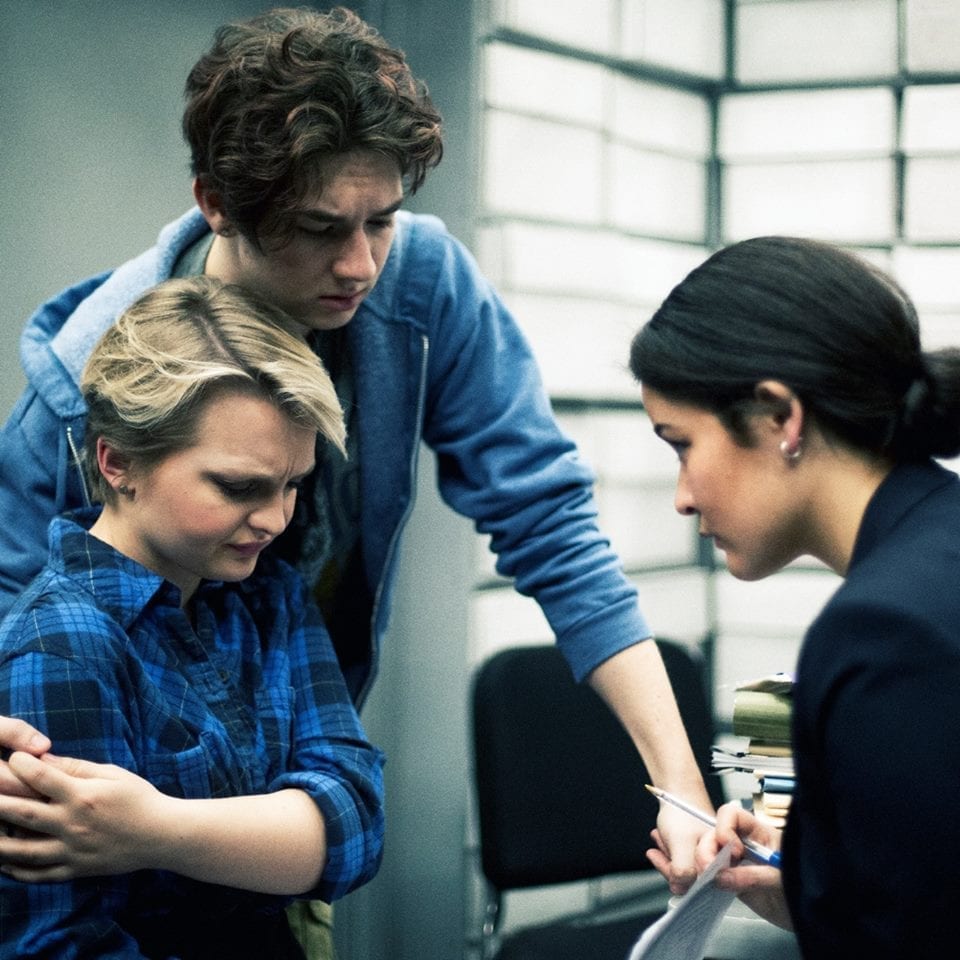SALT LAKE CITY — Perhaps the best way to gain empathy for people who are different is to listen to their stories. Sometimes those stories can be shocking or disturbing and we want to shy away and avoid discomfort, but it is so important to remember that the people in the stories have no such option. They can’t just opt out, those stories are their lives. Westminster College’s Luna Gale, while not based on specific person, presents events that have happened countless times to real people.

Written by Rebecca Gilman and directed by Jared Larkin, this play explores the most difficult parts of the lives of Karlie (played by Abby Maxwell) and Peter (played by Eli Unruh), the teenage parents of baby Luna Gale. Both parents are addicted to meth and trying to survive on a single income. The play begins with Karlie and Peter at the hospital waiting for a diagnosis of their baby daughter who is very ill. However, their substance addiction and the severity of Luna’s condition become clear to authorities, Luna is taken away from them and given to Karlie’s mother Cindy (played by Suni Gigliotti). Conflicts arise between Luna’s non-religious parents and her Evangelical Christian grandmother.
This is a story about a broken bureaucratic system that frequently fails the people it is designed to help. The director’s note presents horrifying statistics, including that a child enters foster care every two minutes in the US. Over 400,000 children are currently living under foster care, but numbers don’t tell stories. They don’t represent people with hearts and souls and challenges. Luna Gale breaks down the protagonist/antagonist structure, and instead give the audience complicated, flawed, human characters. In real life there aren’t people who are all good or all bad, just people who are trying their best, with varying degrees of success, to be happy.

One of those flawed complex characters social worker Caroline, played by Merry Magee. Caroline has been working with foster children for twenty-five years and has become an expert on the topic. She chose her career with a sincere desire to help the most vulnerable people in society, but after so many years seeing so many horrible things, her ethics begin to slip. Magee held nothing back as she treated her role with the same unbridled dedication and passion as her character did with social work. Maxwell and Unruh played a great couple together with just the right about of chemistry. They were drawn to and clearly loved each other, but there was a hesitation and an incompleteness to their relationship, which is exactly what would be expected from a drug-addled teen couple. Cindy represents to church in contrast with the state. While she clearly loves her daughter and granddaughter, she doesn’t always get things quite right. She’s forced to face her past actions and her contribution to the situation at hand. Gigliotti’s Cindy spent the whole play on edge, anxious over how events could unfold. She is, perhaps, the character with the most to lose.

The show is terribly engaging, drawing the audience in from the very beginning with a beautiful opening sequence. Set changes are choreographed like a dance, pulling the scenes together so seamlessly it’s almost jarring when the lights go down for intermission. This is one of the smoothest productions I’ve ever seen, especially considering it was opening night. The show was so well-rehearsed and fluid it felt like it had been running for weeks. The only note I could bring myself to give is that everyone in the show is basically the same age, and they look it. Some attempts were made at aging make up, but they weren’t convincing. It was a bit distracting when Caroline says that she’s been a social worker for twenty-five years when she doesn’t even look like she’s been alive that long.
I think Larkin said it very well in his director’s notes. “It’s easy to assign blame to others for societal ills, but if we home to fix any of this, we have to take a harsh look at our realities, have the difficult conversations, and take ownership of both the mess and the solutions.” This play accomplishes exactly that goal. As I was leaving I overheard snatches of conversations about what can be done to help the people who need it most. Luna Gale and other stories like it inspire us to step outside of our comfort bubbles and reach beyond ourselves.
[box]Luna Gale plays Thursdays through Saturdays at 7:30 PM through March 11 in the Dumke Blackbox Theatre on the campus of Westminster College. Tickets are $10. For more information, visit Westminster College Theatre Facebook page.[/box]
